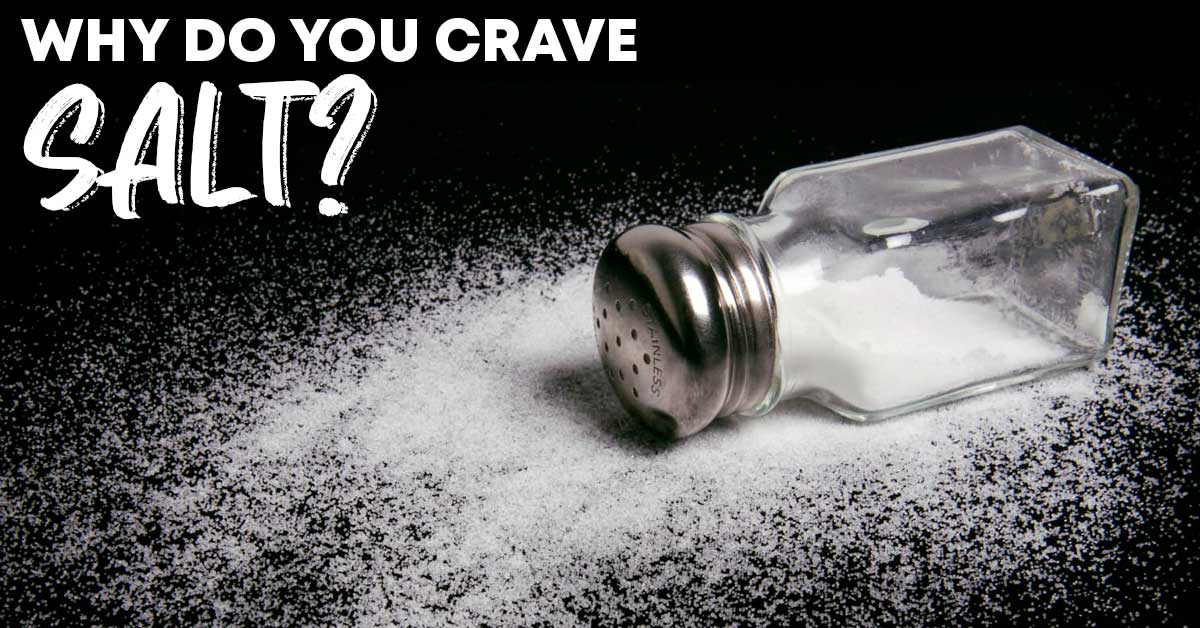The FDA estimates that the average American consumes 3,400mg of sodium each, far higher than the FDA recommended limit of 2,300mg (the American Heart Association recommends 1,500mg at most). It’s easy to see that most American’s are consuming far too much salt.
This can be a hard craving for some patients to overcome. Additionally, you may find there is far more salt in your food than you assume.
If you find yourself craving salt though, it can be your body’s way of notifying you that there is something wrong. Dehydration or electrolyte imbalances, which are both can occur after sweating, can cause salt cravings.
Sweating and Salt Cravings
Exercising or being outside on a hot day can cause you to break a sweat. You must rehydrate soon after that loss of fluid. When you sweat significantly, your body can begin to crave salt as a way to remind you to replace lost minerals. This is most common in people who exercise for 90 or more minutes at once time.
You lose electrolytes and other minerals when you sweat, resulting in an imbalance in your body. This is why sports drink companies often emphasize the electrolyte replenishing aspects of their beverages in their marketing. These sports drinks are often very high in sodium, making them a poor beverage choice if you are not sweating. However after sweating significantly, replacing this salt is crucial to maintaining proper electrolyte balance.
You may be surprised to find that sodium, which is synonymous with salt, is a crucial electrolyte that is necessary to properly support your nerves and muscle. This does not mean you should load up on more salt at every meal (considering most people are already consuming too much), but it helps explain why your sports beverages contain so much salt.
Stress and a Lack of Sleep
This is not specific to salt cravings, but stress tends to make you crave some of your favorite comfort foods.
Similarly, a lack of sleep can make you crave food that is less than ideal for your overall health. This unhealthy eating after a sleepless night is among the reasons why a lack of sleep is associated with weight gain.
What Other Reasons May Cause Salt Cravings?
Though the above reasons are the most common, your salt cravings may be a sign of an underlying health complication. If you have ongoing salt cravings that do not seem to be brought on by the above common issues then talk to your provider.
What does Eating Too Much Salt do?
Overconsumption of salt will eventually stiffen blood vessels, resulting in difficulties with effectively pumping blood. Additionally, this means your heart must work harder to circulate blood throughout your body, raising your risk of heart disease.
If you have high blood pressure, the American Heart Association recommends decreasing your sodium intake to recommended levels, and your blood pressure will often decrease.


